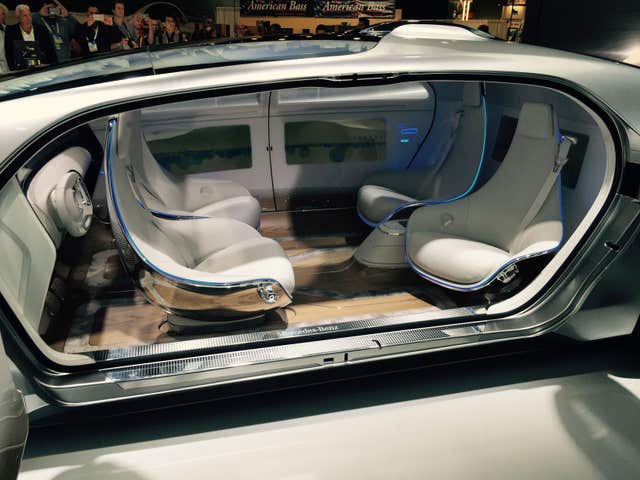
Researchers could have solved the problem of motion sickness in self-driving cars.
A team from the University of Michigan has developed and patented a headset/eyewear system that can prevent motion sickness by displaying light in a wearer’s peripheral vision that mimics a car’s movement and can prevent sickness when looking down at a phone or book.
Motion sickness is caused by a disconnect between our sense of motion and what we can see – something the researchers say could increase with the rise of driverless cars, with more road users freed from keeping eyes on the road.

As well as the personal eyewear, the patent also covers the technology being built into the car.
The team, from the university’s Transportation Research Institute, said motion sickness stands in the way of the increased productivity self-driving vehicles were supposed to trigger.
Michael Sivak from the institute said: “This is more important with the introduction of autonomous vehicles.
“In autonomous cars, everyone will be a passenger. So you will have a larger potential pool of sick people. The protection that drivers have received from driving won’t be there any more.
“The productivity gains that the proponents of self-driving vehicles are talking about may not happen if we don’t address the motion sickness problem.”